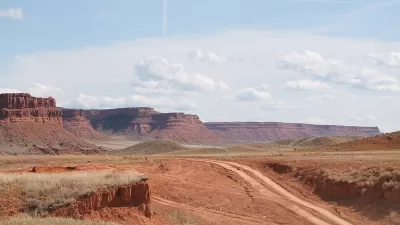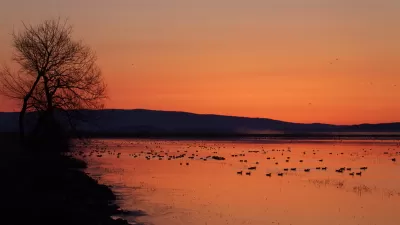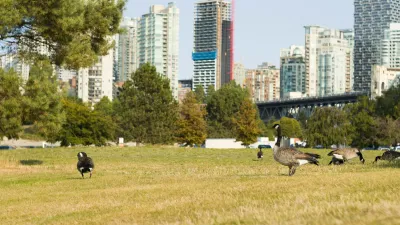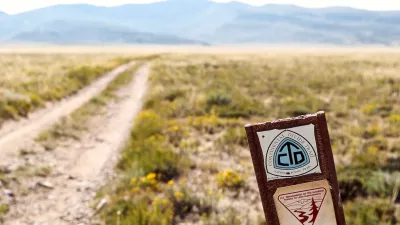The president's ambitious commitment to protect 30% of U.S. land and water by 2030 might be too broad in attempting to satisfy all land users.

In the days after his inauguration, President Biden made a "commitment to protecting 30% of U.S. land and water — over 720 million acres — by 2030." But, as Wufei Yu reports in High Country News, a preliminary report by the Department of Interior has made "Western and Indigenous climate activists and conservationists fear that it promises too much and could hamper conservation by trying too hard to please all the various land users."
Yu writes:
In order to tackle three challenges — the disappearance of nature, climate change and inequitable access to the outdoors — the report laid out a locally led, science-based and collaborative road map toward achieving “30 by 30.” As part of it, the Biden administration invited farmers, ranchers and fishermen to get involved, promising to maintain ranching in the West “as an important and proud way of life.” The report also acknowledged the conservation movement’s discriminatory past, including its appropriation of Native American ancestral land and neglect of communities of color, and it vowed to work toward a more inclusive future.
"Many conservationists pointed out, however, that, according to the America the Beautiful report, farming, grazing and logging could count as conservation under the 30% designation if the land is managed with “the long-term health and sustainability of natural systems” in mind." These solutions, some argue, "only kick the can of problems down the road." States, Yu writes, have to take action too. "Historically, most conservation projects happen on the region’s public lands. So far, two states have hopped on board. Nevada became the first to pass legislation adopting the conservation goal, while California Gov. Gavin Newsom signed an executive order that will establish listening sessions with tribal members and private landowners regarding the project."
FULL STORY: A reality check on Biden’s ‘30 by 30’ conservation plan

Planetizen Federal Action Tracker
A weekly monitor of how Trump’s orders and actions are impacting planners and planning in America.

Congressman Proposes Bill to Rename DC Metro “Trump Train”
The Make Autorail Great Again Act would withhold federal funding to the system until the Washington Metropolitan Area Transit Authority (WMATA), rebrands as the Washington Metropolitan Authority for Greater Access (WMAGA).

The Simple Legislative Tool Transforming Vacant Downtowns
In California, Michigan and Georgia, an easy win is bringing dollars — and delight — back to city centers.

The States Losing Rural Delivery Rooms at an Alarming Pace
In some states, as few as 9% of rural hospitals still deliver babies. As a result, rising pre-term births, no adequate pre-term care and "harrowing" close calls are a growing reality.

The Small South Asian Republic Going all in on EVs
Thanks to one simple policy change less than five years ago, 65% of new cars in this Himalayan country are now electric.

DC Backpedals on Bike Lane Protection, Swaps Barriers for Paint
Citing aesthetic concerns, the city is removing the concrete barriers and flexposts that once separated Arizona Avenue cyclists from motor vehicles.
Urban Design for Planners 1: Software Tools
This six-course series explores essential urban design concepts using open source software and equips planners with the tools they need to participate fully in the urban design process.
Planning for Universal Design
Learn the tools for implementing Universal Design in planning regulations.
Smith Gee Studio
City of Charlotte
City of Camden Redevelopment Agency
City of Astoria
Transportation Research & Education Center (TREC) at Portland State University
US High Speed Rail Association
City of Camden Redevelopment Agency
Municipality of Princeton (NJ)





























